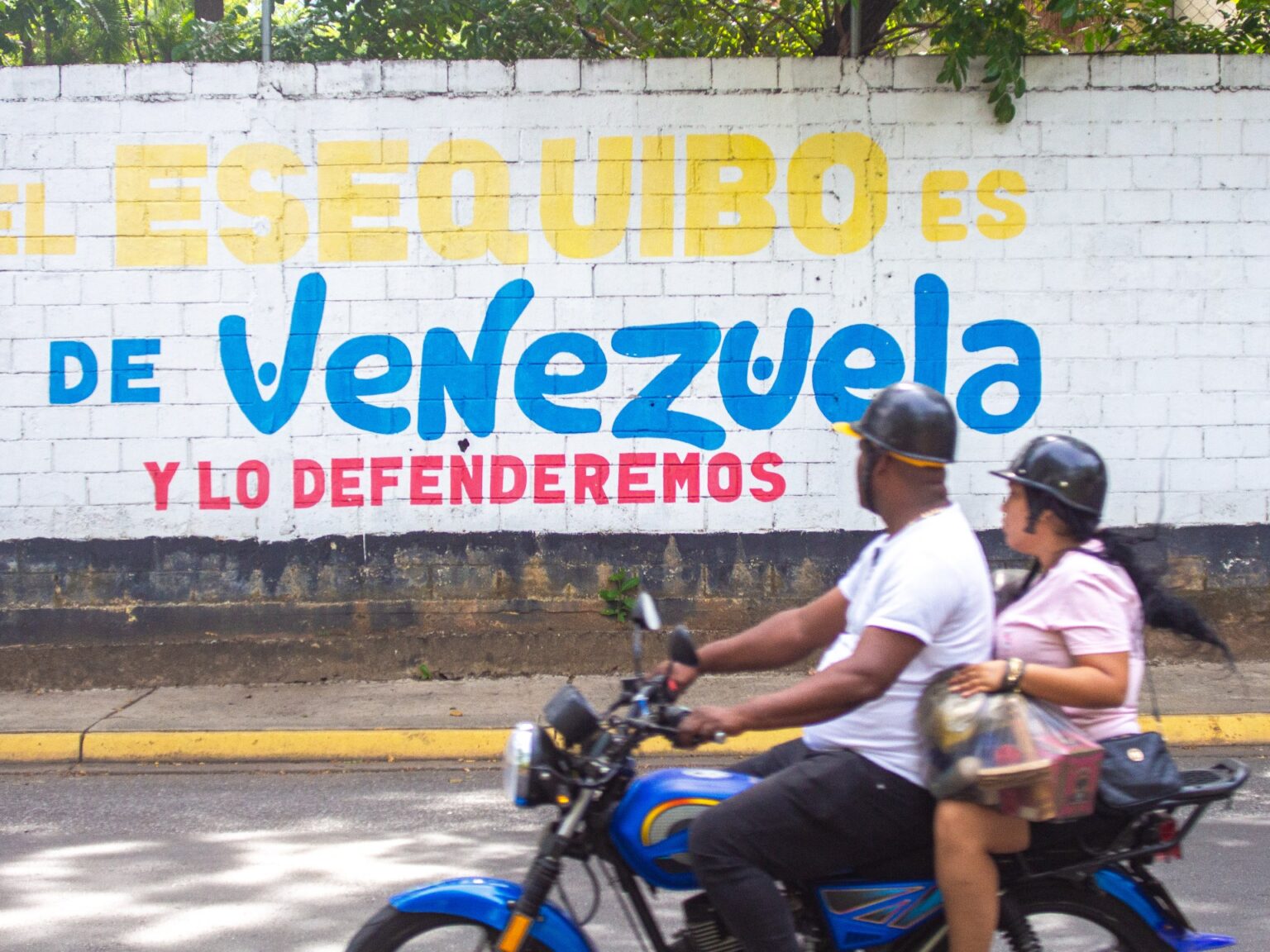However, the case has been slowly winding its way through the international court since 2018. And the Maduro government views the UN body as a tool of foreign interference, particularly for his rivals in the US.
Maduro’s supporters point to the fact that, in 2015, the US oil giant ExxonMobil discovered vast offshore fields near Essequibo. The company has continued to explore the contested waters in search of more oil and gas deposits.
For Rivas, the 2015 discovery “rang alarm bells”, leading him to fear further US incursions into the disputed territory.
“It’s absolutely terrible because, behind this, there’s an aspiration to control mineral wealth, oil, sources of fossil energy and even the water wealth that exists in all of that territory,” Rivas told Al Jazeera.
To him, sovereignty over Essequibo is paramount, and the Venezuelan flag is a symbolic reminder of its importance.
Since 1863, the yellow, blue and red banner has featured stars to represent the seven provinces that fought for independence from Spain. But in 2006, a new star joined the flag — one to symbolise Essequibo.
Experts, however, say Venezuela faces the possibility of backlash for using tools like the regional elections to assert control over Essequibo.
Sadio Garavini di Turno, a Venezuelan political analyst, used to serve as the country’s ambassador to Guyana from 1980 to 1984. He considers Maduro’s actions as not only “frivolous” but irresponsible, given the ongoing proceedings before the International Court of Justice.
“We’re in a bad light with the court and the magistrates,” the ex-diplomat said.
He also questions Maduro’s sabre-rattling in the region. While Venezuela’s military dwarfs that of Guyana, the former British colony has powerful allies, including the UK and the US.
Any full-fledged military takeover, Garavini di Turno argued, “would be a huge stupidity”.
“If they take forceful action, they would have the international community, starting with the United States, against them,” he said of Maduro and his allies. “It would give the community, particularly the United States, an excuse to intervene.”
Already, in March, US Secretary of State Marco Rubio warned Venezuela it would face “consequences for aggressive actions”.
The impact of the upcoming vote on Essequibo is so far unclear. Fernandez, the political analyst, said even details about who can even vote have been hazy.
“It’s deliberately opaque,” Fernandez said. “Opacity is going to be the norm in the upcoming electoral processes.”
Read the full article here

